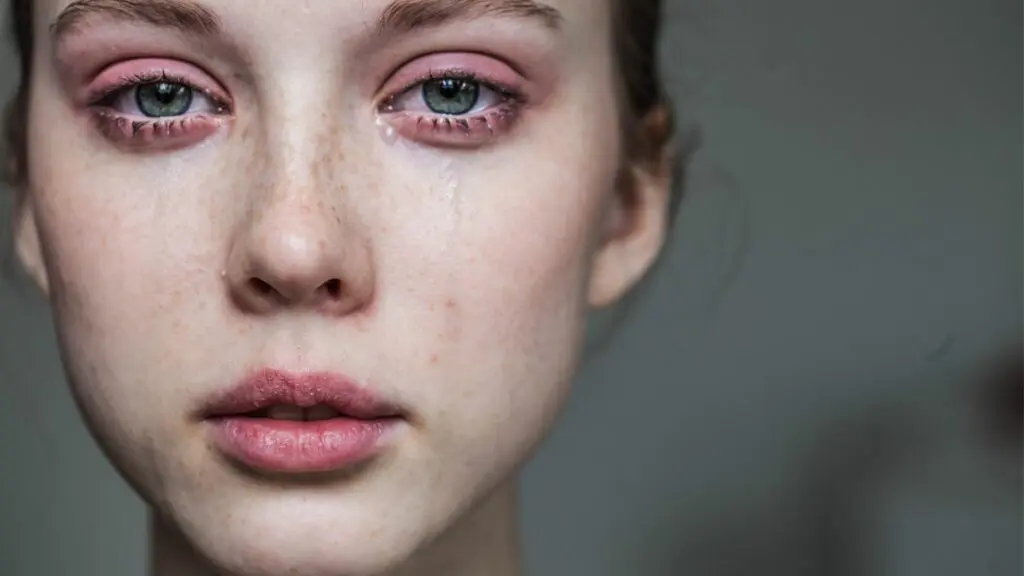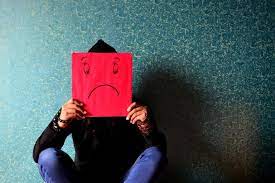In this article, we will talk about sadness. It is an emotion that many of us feel every day. Some people may not know what sadness feels like or why they are feeling it. But most people have experienced sadness at some point in their lives. Sadness can range from mild to intense. It can last for a few minutes or hours. We all get sad sometimes.
Contents
What Is Sadness?
Sadness is one of the most common human emotions. We all experience it at some point in our lives. Sadness is when we feel like there is something wrong. It often happens when somebody dies, or if you lose something you love. Sometimes it can happen when you fail at what you try to do, or if your body hurts.
Signs That You Are Sad
Many signs can indicate that someone is feeling sad. Some common symptoms include
- Crying: Tears are often a physical sign of sadness
- Feeling down or blue: this can manifest as feeling hopeless, helpless, and worthless
- Lack of interest in things that used to make you happy
- Changes in appetite: either eating more or less than usual
- Changes in sleep patterns: sleeping too much or not enough
- Slowed movements and speech: sometimes people feel so sad they don’t want to move or talk anymore
- Having a low mood: this can manifest as feeling hopeless, helpless, and worthless
- Withdrawing from friends and activities: some people withdraw from social activities and relationships when they are feeling sad
- Experiencing physical pain: some people report feeling physical pain when they are sad
Sadness is a normal and common emotion. Many events can trigger sadness in us, such as losing someone we love, failing at something we’ve tried hard at, or experiencing physical pain.
We may not always be able to understand what it feels like or why we feel that way but most of us have experienced this emotion at some point in our lives. Sadness can last for a long time or just a little bit of time. You get sad when you are not happy. There are many signs of sadness including crying, mood changes and not feeling like doing anything that you usually like to do. Sadness is not a good feeling and we all feel it sometimes. But there is nothing wrong with it and no reason to be afraid or ashamed about it.
Causes of Sadness
There are many reasons why someone might feel sad. Some common causes of sadness include the following:
- Losing someone we love: This is one of the most common causes of sadness. When we lose a loved one, feels like a part of us has died as well. We can feel a range of emotions, such as grief, pain, loneliness, and emptiness.
- Failing at something we’ve tried hard at: When we put a lot of effort into something and it doesn’t work out, we can feel sad and disappointed. This is common for students who have studied hard and athletes who have trained a lot.
- Physical pain: Sadness can be caused by physical pain, such as when we are sick or injured. Often when our body is hurting we will also feel emotional pain.
- Having to deal with difficult life changes: It is normal to feel sad when you are experiencing major changes in your life, like moving away from home, getting divorced, or starting a new job that doe not seem to provide a comfort zone initially.
- Depression: Depression is a mental illness that causes people to feel sad for long periods. If you feel sad most of the time and it impacts your life, then you might want to go see a doctor.
There are many reasons why someone might feel sad. Some reasons for sadness are losing someone, failing at something you tried hard on, physical pain, difficult changes in your life, and depression.
Potential Side Effects Of Sadness
Sadness can have side effects that impact both our mental and physical health. Some common side-effects of sadness include:
- Changes in eating habits, such as eating too much or not enough food
- Weight gain or loss due to changes in appetite
- Sleeping is hard because you are sad. It is hard to sleep. You have insomnia or hypersomnia.
- Decreased energy levels make it harder to do daily tasks like work, schoolwork, chores, etc…
When you are feeling sad it’s important to remember there are many potential side effects including changes in appetite sleep patterns, decreased energy levels, weight gain/loss, difficulty sleeping at night, and hypersomnia.
Disorders Related To Sadness
There are a few mental health disorders that can be related to sadness. Some common disorders that might occur alongside sadness include:
- Depression: Depression is a mental illness that causes people to feel sad for long periods. If you feel sad most of the time and would like to talk with a doctor about it, then you should speak to a doctor.
- Anxiety Disorders: Anxiety disorders are mental illnesses that cause people to feel excessive amounts of fear or worry. People with anxiety disorders often have trouble controlling their thoughts and emotions which can lead them to feel very sad.
- Bipolar Disorder: Bipolar disorder is a mental illness characterized by extreme mood swings from high (mania) to low (depression). People with bipolar disorder can often feel very sad during a depressive episode.
There are a few mental health disorders that can be related to sadness including depression, anxiety disorders, and bipolar disorder.
How To Deal With Sadness
There are many ways to deal with sadness when it comes up. Some people like to talk with a friend or family member when they have feelings. Other people prefer to keep their thoughts and emotions bottled up inside. Here are some tips on how to deal with sadness:
- Talk about your feelings: This can help release the negative energy that is often associated with sadness. Talking openly and honestly helps us feel supported by those around us.
- Write down your thoughts: Putting our thoughts into words can also help us understand what we’re feeling and why we’re feeling sad. Often just getting everything out onto paper can help lighten the load.
- Exercise: Exercise can help us get rid of sad feelings. It’s healthy for our bodies and we feel good when we’ve finished!
- Don’t isolate yourself: Loneliness often makes your feelings of sadness worse. You need to get out and be around people who care about you, or you will feel sad. Try not to hide away from everything that hurts your heart because this will just make things worse in the long run.
When you are sad, there are many ways to cope. You can talk about how you feel, write down your thoughts, exercise or be isolated for the time being.
When to Seek Professional Help
If you are feeling sad and any of the following symptoms persist for more than two weeks, it is advised that you seek professional help:
- Thoughts of suicide or self-harm
- Excessive crying
- Apathy towards things that used to make you happy
- Inability to enjoy activities you once enjoyed
- Changes in eating habits or weight gain/loss
- Increased alcohol or drug use
- Difficulty sleeping at night
Therapy Options To Get Rid Of Sadness
There are many different options for therapy that can help people get rid of sadness. Some common types of counseling include:
- Individual Therapy: This type of therapy is when you meet with a trained professional to talk about your problems. They will try to help you find a way to deal with them in the future.
- Group Therapy: This type of therapy is when people get together and talk about their feelings and how they feel about what’s happening in their lives.
- Cognitive Behavioral Therapy: This therapy is often used to treat depression and anxiety disorders. It focuses on how our thoughts, feelings, and behaviors are all interconnected.
- Family Counseling: Sometimes it helps if your loved ones participate in group sessions where everyone talks freely about feelings/experiences related to family life.
- Couples Counseling Or Marriage Therapy: If you have relationship troubles then marriage/couples counseling might be a good option for you.
These are just some of the many therapy options that can help people get rid of sadness and other mental health disorders!
Helping Someone To Deal With Sadness
It’s important to be there for someone who is dealing with sadness because it can sometimes become too much on its own. Here are some tips on how you can help them through sad times:
- Don’t judge their feelings or experiences, just listen and try not to offer advice unless they ask for it first.
- Try to keep your conversations light-hearted so that the person doesn’t feel overwhelmed by what is being discussed.
- Be mindful of when certain topics might upset them even if they were fine before talking about something specific!
- This is a way to make people feel good. It helps them when they are sad.
If these steps don’t seem like enough then it might be a good idea to get in touch with the help of their therapist so that they can find ways to talk about and deal with sadness together.
Consequences Of Being Sad
There are many consequences to being sad, such as:
- Some people might experience problems with sleeping, eating, or concentrating at school or work. Sadness can also lead to thoughts of suicide or self-harm in some people. It’s important to seek professional help if these symptoms persist for more than two weeks!
- Sadness can be a very difficult emotion to deal with. It often comes along with feelings of loneliness, helplessness, and worthlessness. We might feel like we’re the only ones who are feeling this way, but that’s not true! Many people experience sadness at some point in their lives.
- When someone is sad they must receive support from loved ones such as friends and family members. This way everyone involved can work through their thoughts/feelings together so that no one feels like they’re going through this alone! You have other options if you don’t feel better after trying these things. They might be helpful for you.
- Sadness is a feeling that people have. It isn’t a sign that the person cannot cope with life or is weak. Feeling sad for no reason can lead to anxiety and depression. If you’re feeling this way without understanding why consult your doctor or therapist right away. Today many helpful treatments can help make negative emotions go away. They include therapy sessions and medicine given by professionals who know how your brain works best.
Conclusion
There are different types of sadness, but they all have one thing in common. They make you feel bad and want to do nothing. The good news is that there are ways to deal with these feelings. If you’re feeling sad right now, try talking about your feelings or listening to music together with a friend who understands what you’re going through–or just call someone up for some support!
For more information, please contact MantraCare. Depression is a mental illness characterized by persistent feelings of sadness, hopelessness, and loss of interest in daily activities. If you have any queries regarding Online Depression Counseling experienced therapists at MantraCare can help: Book a trial Depression Therapy session









